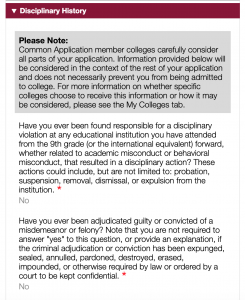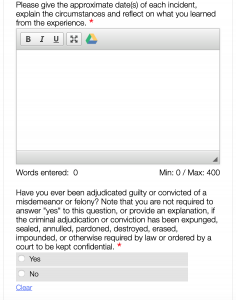How to Really Get to Know the Colleges on Your List

Over the years, I have found that students who take “extra steps” consistently get into their top schools…and many more.
The students we work with who engage in extended research and outreach do extremely well in the college admissions process. Maybe it is because they know the schools they are applying to in ways other students do not; maybe it is because knowing schools well helps them craft smaller, more targeted college lists; or maybe it helps that they have gone above and beyond to get to know a school and see if that school is the best fit for them and vice versa.
Since I am no longer working in admissions, I can’t say for sure. But I can say with confidence that engaging in extended research and outreach can make a substantial difference, both in your applications and outcomes. It also has one other major benefit: it means you can walk away from this process knowing you did everything you could, you pulled out all of the stops, you did not rush the process. And when you walk away feeling proud of the process, in our experience, it makes it easier to accept the outcome, whatever it may be.
Consider the following for the schools on your list. Why? Because all of the above, and, many colleges use demonstrated interest as a factor in their admissions process. When two files are side-by-side, the applicant that has the most touch points with the school will likely be deemed more interested, and that might give them an advantage during file evaluation.
Ways to engage in extended research and outreach (aka network with colleges and get to know them really well):
– Don’t forget your regional reps! They usually read your file, so keep them in the loop throughout your admissions process, from the time you visit through while you are waiting for your decision. Send them an update after campus visits, or to say “nice to meet you” after those visits or college fairs. Keep them posted on new accomplishments or awards after you submit your application. They should be your go-to person in admissions throughput the application process.
– When you receive email from colleges, open it and click through. Many schools track whether you open their emails or not and if you click through. Open them!
– Reach out to faculty in your department of interest. Faculty members are busy and so not always the most accessible, but it can’t hurt to try. Your #1 reason for applying to any school should be academics. Reaching out to individuals in your intended major is a great way to learn more about what your academic life at school X might entail. You might also want to try reaching out to a specific research center or institute of interest. If you email faculty, copy their department or program coordinator. The emails of the individuals in these roles are often available online. If you are planning a trip to campus and it is a bit short notice, reaching out to the department or program coordinator will be your best bet for an on-campus meeting. Again, these interactions and the information gained from them could be helpful when it comes time to write your essays or interest letters (see below) and will certainly serve you well as a talking point in an interview. A quick email sample (but please, make it your own!):
Dear [name],
My name is [enter name] and I’m a [year] at [high school full name]. I will be visiting [college] on [date] and I want to learn more about the [enter program or major name] while on my visit. Would it be possible to meet with you or someone else within the department (or even a current student) while I am on campus that day? If not, anyone you can connect me with via email would be excellent.
Thank you so much,
[name]
[phone #]
*Don’t forget to send thank you emails to everyone that you speak with—even if by email only.
– Make peer and local connections. Do you have friends at the schools on your list? Talk to them about their experiences, meet up with them on your visit to campus (if possible), and use them as a resource to get to know more about the school (especially about aspects you can’t glean from the website or official tours).
You can also check (via an easy Google search) to see if the college/university has a local alumni group; if so, reach out to them and ask to be connected with someone for an informal informational interview—a great option if you do not know anyone at the school that is a current student. Use this meeting as an opportunity to learn more about the school, and to demonstrate your interest in attending. Some regional groups host events and attending one that interests you (for example, a talk by a professor), if you can get an invitation, could be a great learning experience—and an excellent addition to a supplemental essay or interest letter.
– Write an interest letter (email) after you apply. This letter should contain information you were not able to present in the required application materials (resume, essay, etc.). It is a beneficial way to show a school a little extra love and reiterate your interest. Citing the contacts you established above (if you haven’t already discussed them at length in previous materials), can work well in these letters. An interest letter should be sent after you apply, and can also include any relevant updates since the time you applied, such as awards, etc. Many schools allow you to upload additional information on your “portal page” after you apply, so this letter could be uploaded there; if not, you can email it to your regional rep and CC the general admissions email. Please note: some schools explicitly state they do not welcome additional materials. Do not send interest letters to these schools.
– Take advantage of virtual tours and local college fairs/college nights. Not everyone can get to campus, and even if you can, school’s virtual tours sometimes offer perspectives in-person tours do not. You can also tour colleges from the perspective of actual students by taking tours via CampusReel.org. If a school is attending a fair near you, and you know you won’t be able to get to campus in person, go meet your rep at the fair/college night.
*Stay in the know! Subscribe for news, tips, and advice*










